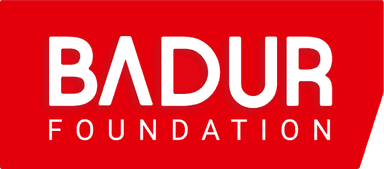Over the past fourteen years The Pearl Foundation (“Pearl”) has been working with Roma communities in the rural district of Berettyóújfalu, one of 33 most disadvantaged areas in Hungary. With high levels of unemployment many families are locked in a cycle of poverty.
Pearl has during this time developed a model which aims to improve opportunities for the Roma living in deep poverty in these communities, approaching the complex social issues in a holistic and integrated way through three strands of intervention: education, family support and community development where the third strand involves working closely with local institutions to improve access for Roma to services such as basic healthcare.
Initially, Pearl set up the Pearl Basic Level Art School. Here children, 70% of whom come from severely disadvantaged families, are able to showcase their talents which they just needed the opportunity and freedom to express in some form. The art school has achieved great success with the participating children’s overall engagement in school and social interaction increasing. School drop out rates in the area have fallen 20% alone over the past three years. Through the art school Pearl has slowly built up relationships with the parents realising that they too needed educating for the sake of their children. Pearl was seen in the communities as a helping organisation and has gained the trust of the families.
Once the relationship between the art school and the families were built, Pearl focused its work on community development. The organisation’s work in this area is extensive and covers a range of activities from a programme to reconnect electric meters to adult training in basic IT skills. Community projects now include communal workshops where people can come and use the tools to repair their homes and those of their neighbours. The education of the adults, their training and skills, are hence undertaken in an “invisible” way through these projects. Pearl’s wide range of projects illustrates their philosophy that the community is an integrated system which needs to be addressed as a whole when working to bring about positive change.
One particular village where Pearl has concentrated its efforts recently is the village of Told. It is a typical village of the region: 70% of the residents are Roma, facing numerous obstacles in terms of lack of basic education, discrimination and even access to public transport. Pearl realised that the adults here needed to develop their skills to help them improve their opportunities of creating livelihoods and finding employment. For adults suffering from long term employment having some form of job would also bring back a sense of respect to the entire family. Pearl is running a number of very successful projects at Told. The first one is a social enterprise where the women of the village take art work from the Art School, and with some assistance are able to create patches that they then sew onto cushions, bags, towels etc. These finished items are then sold and any profits are fed back into the community for similar and other initiatives. The second project is that of making biomass briquettes. Here using the residual by-product from the harvest and chaffing process of sunflower seeds, briquettes are made using a simple press system. These can then be stored for use as fuel during the winter months.
The Foundation was approached by Pearl to assist in its funding of an agricultural social enterprise in Told where the community would grow medicinal plants and collect wild herbs, with the longer term objective of becoming a quality supplier to local, established companies. The garden has been planted with marigolds, milk thistle and artichokes that have already been harvested a number of times during the summer months and will again in November.
The aim of the project is to create a lasting source of sustainable livelihoods for the Told community. The Foundation believes this will have a positive impact on this small community not only providing income and skills to the adults but also become future role models to their children.



